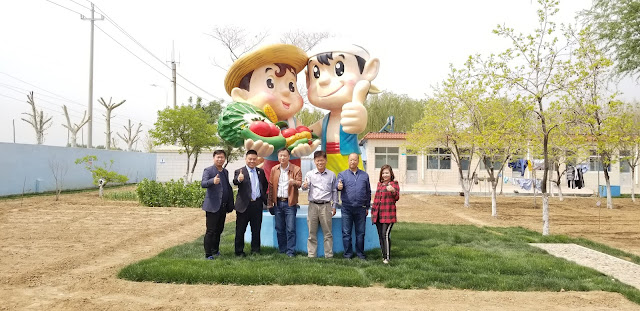“ The biggest opportunity for the next 30 years is in agriculture”, Jim Rogers, one of the most famous investors of the 20th century said in CBN’s interview.
Nowadays, the rapid development of agriculture provides essential food for people's life. However, in the long-term intensive agricultural production process, excessive use of fertilizers and unscientific fertilization methods have caused damage to the soil structure, resulting in serious imbalanced pH value of soil, which has aroused the attention of the vast number of growers.
What is the cause of imbalance soil pH value?
In order to increase crop’s yield as soon as possible, farmers use a lot of water-soluble fertilizers with incomplete nutrition, but just few nutrients can be absorbed by the crops. After years of planting, the chemical composition in the soil is deposited, the organic matter content is reduced, and finally the soil pH is unbalanced.
What are the effects of soil acidification on crops?
1. Acid substances hurt the roots directly, affecting the growth of the root system, reducing the absorption capacity of crops to water and nutrients, and causing abnormal plants’ development.
2. The absorption and utilization rate of medium elements and trace elements are low. Soil acidification causes not only a large loss of nitrogen, but also the fixation of phosphorus and potassium.
3. Acidic soil is prone to the breeding of pathogenic fungi, decreasing the number of beneficial microorganism that decompose organic matters.The soil-borne disease is getting worse and worse.
4. The crops are weak in growth and low in disease resistance, so they are susceptible to disease infection.
What are the effects of soil alkalization on crops?
1. The plant can not get the required amount of iron to make chlorophyll.
2. The benign structure of the soil is destroyed and the soil is consolidated.
3. Alkaline soil has a high content of soluble salt, which is easy to produce toxic and harmful substances and cause various diseases.
4. The availability of nutrients in the soil is reduced, a large number of trace elements needed by crops are missing, and the plants can not develop normally.
Soils with unbalanced pH makes it less efficient to absorb nutrients from soil. Such a vicious cycle causes great damage to the soil and losses to farmers. So it is very important to choose reliable water-soluble fertilizer and use it correctly. However, traditional water-soluble fertilizers are powdery or liquid, which are not comprehensive and convenient to use.
So the first granular water-soluble fertilizer cocoly was born in 2013. Due to the rich nutrition and comprehensive application method, cocoly granular water-soluble fertilizer has been widely welcomed by farmers and exported to more than 20 countries.
As the founder of granular water-soluble fertilizer, cocoly can solve the most serious problem by adjusting the pH value and increasing the utilization of fertilizer because the core element PAS(Polymeric Acid Substance) that has been applied for national patent.
Besides, the nutrients in cocoly granular water-soluble fertilizer provide all the nutrients needed by crops throughout the growth cycle, and it contains a variety of beneficial bacteria that regulate the microbial environment of the soil.
Farmers can get better returns as long as the soil conditions in which crops grow are better. Cocoly granular water-soluble fertilizer has been committed to the development of world agriculture and the efforts to make the global agricultural get harvest.






































 Finally, he found that the growth of tea was very good, buds were full, the effect was very good. Compared with other tea gardens, his yield is obviously higher, and the tea picking period is 1 week earlier than other tea gardens.
Finally, he found that the growth of tea was very good, buds were full, the effect was very good. Compared with other tea gardens, his yield is obviously higher, and the tea picking period is 1 week earlier than other tea gardens.














